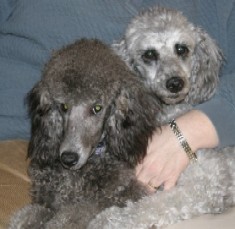
The ABC has given vent to some further thoughts about human rights. The full text, together with spin, is here. Dr. Williams’s argument in this piece seems to turn on this claim: “The recognition of a body as a human body is . . . the foundation of recognising the rights of another.” To which Tobias Haller’s cat, Augusta Victoria, appends the following critique, based on years of experience with a bodiliness that has been subject to numerious transformations, not the least of which involved the removal of portions of her anatomy. As Augusta Victoria sees it, Dr. Williams’s framing of the issue “seems to shift the embodiment away from the body itself into the subjective perception of it by some other entity . . . ,” and hence,
[T]he question arises as to whether Feline Rights are innate (based on existence as a Feline Being) merely on account of embodiment as a feline, or the recognition of that fact by another entity, be it Human or Dog.
The whole issue is problematic, especially since Dr. Williams’s remarks seem less occasioned by issues of human rights and more occasioned by a concern for “any apparently human body we encounter as in some sense a potential communicator with [us].” This becomes clearer as Dr. Williams develops the argument:
The right of the imperfectly rational person – whether the child or the person with mental disabilities – may be put in question if we stipulate a capacity for reasoned self-consciousness as a condition for acknowledging rights. And to speak of the right of the body as such casts a different light on the sensitive issue of the right of the unborn. . . .
To which the wise feline responds with the suggestion that
As the very earliest embryonic forms of feline and human are barely distinguishable except by the application of sub-microscopic analysis of DNA sequences, it would appear . . . that rights ought not be governed merely by “embodiment” — or by an even more abstruse concept of “recognized embodiment” (surely a receptionist suggestion) — but rather use as a point of reference the principle of descent from other humans — or felines; if, that is, one wishes to address the reality of the fluid nature of embodiment at all its stages of life.
Realizing the fluid and indeed manifold nature of “embodiment at all its stages [and perhaps forms] of life,” as well as the legitimacy of Dr. Williams’s interest in “apparently human” bodies, I put the question to Maximillian Augustus and Murphy O’Farrell, two near relatives of mine who happen to dwell in the neighborhood.† Maximillian, affectionately known as Maxie, stated his conviction that all bishops are alike — “If you’ve smelled one, you’ve smelled them all.” But Maxie isn’t sure that bishops, as a tribe, are human. Murphy countered that the ABC at least looks interesting. “A man with a big, white beard can’t be all bad,” Murphy observed.
†In the photo, Murphy is the poodle on the right, with the raccoon eyes. Maxie is the one who looks like a movie star, on the left.
